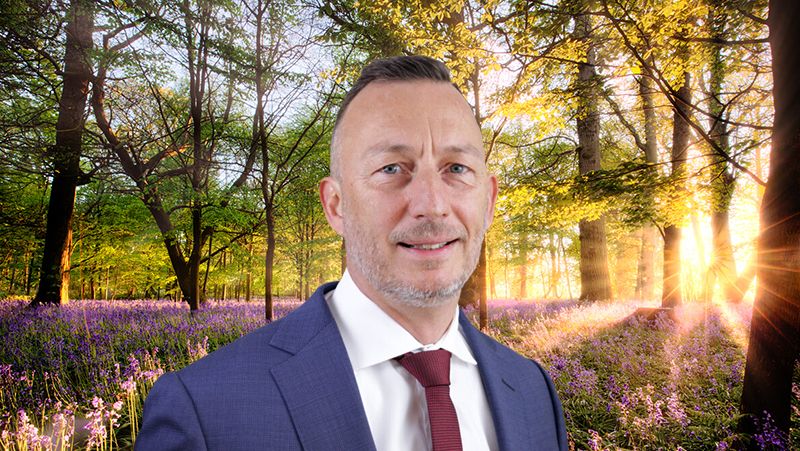In this article for PA Future‘s New Beginnings series for spring, Daniel Wild, chief sustainability officer at J Safra Sarasin Sustainable Asset Management, discusses a more nuanced approach to sustainable investing, exploring new themes in air, water and soil and finding calm in nature.
The first quarter of 2024 has seen industry spokespeople talk about the next iteration of ESG or how ‘ESG is growing up’. What’s your take on this? What is key for the next evolution in this space?
ESG is a very dynamic area that has evolved a lot. One clear lesson is that sustainability is not black and white and there is no one-size-fits-all solution. There are many aspects to consider depending on the outcomes investors are trying to achieve. Accordingly, the space has become much more nuanced, which means we have to be very transparent about what we do and offer a range of differentiated solutions for different client preferences.
Sometimes there is even a conflict of interest around ESG objectives, as we are seeing with the green transition, which heavily relies on strategic minerals supplied by the controversial mining industry. We have to find a way to accommodate all these complexities, developing differentiated, fundamental insights and pragmatic solutions, whilst still respecting client preferences as well as economic facts.
What was the most recent new investment/addition to your portfolio?
Within our Green Planet strategy, we recently added BYD, the world’s leading manufacturer of hybrid and electric vehicles. The Chinese automaker has impressive domestic market share and is poised for further growth as it expands into emerging markets and Europe. The company stands out thanks to a highly integrated supply chain that allows it to precisely control production and pricing, setting it apart from its European counterparts. BYD continues to innovate, particularly in battery technology and autonomous driving, which underscores our confidence in its long-term potential. We foresee a gradual shift towards electric vehicles and the Chinese market after a longer period of weaker sentiment.
Which new themes are you exploring in portfolios?
We are exploring several new themes within our Green Planet strategy, focusing on sustainable solutions based on the elements of nature: air, water, and soil. Besides promising growth prospects in high-tech solutions such as electric vehicles, power semiconductors and energy storage, we also see compelling trends in traditional sectors such as waste recycling, water treatment and power grids.
Recently, we’ve intensified our research into clean water and have identified significant investment potential in companies that address urgent water challenges. For instance, our investment scope covers urban stormwater and wastewater treatment, and the integration of smart sensor technologies to enhance water resource management. As industries increasingly prioritise sustainable water use, there are opportunities not only to mitigate water scarcity risks, but also to minimise environmental impact.
We are also looking into the energies of the future beyond clean tech solutions like wind and solar. We view investments in grid upgrades as a strategic opportunity within the value chain. By focusing on future energy needs and infrastructure, we aim to position our portfolios to capitalise on the broader electrification trend while contributing to environmental sustainability.
It has been said many times that industry is just the beginning of ESG regulation. What else would you like to see?
In general, we are very supportive of regulation that promotes transparency for fair comparison and prevents greenwashing. However, we would like to see regulation that does not oversimplify ESG and accepts that there can be a range of valid approaches to sustainability issues. Most importantly, we are sceptical when regulation seeks to impose or prescribe what investors should do. In other words, ESG regulation should be like financial regulation: it enforces standards and transparency, but also gives investors the freedom to choose their approach based on reliable disclosures.
Spring is the time for new beginnings. What are you looking at with a fresh perspective in your personal work life?
The turmoil in the world – the energy crisis, geopolitical tensions, inflation, the Covid pandemic – has shown us that we need to reflect on what is really important for our societies and economies, but also for our personal lives. Such a reality check, despite the harsh circumstances, comes with a certain healing power. Probably due to my Swiss background, I find my calm anchor in the mountains and nature in general.
Society has to change, and life means continuously embracing change. But a solid foundation has to be there on a personal, professional, and economical level.








